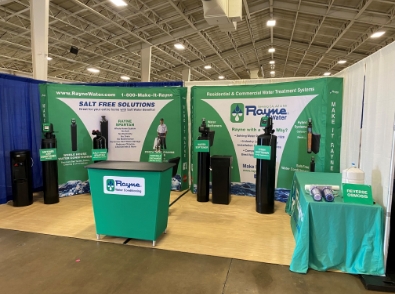When it comes to ensuring the purity and taste of your drinking water, a top rated condo reverse osmosis system is an exceptional choice. These systems effectively remove contaminants, providing clean, safe water for you and your family.
What is a Reverse Osmosis Drinking Water System?
A reverse osmosis drinking water system uses a semi-permeable membrane to remove harmful substances from water. It effectively filters out contaminants including chlorine, iron, and other impurities that can affect water quality. This process not only improves taste but also ensures you are drinking healthier water.
Key Features of a Reverse Osmosis System
- Advanced Filtration: Utilizes multiple filtration stages including sediment, carbon, and reverse osmosis membranes.
- Space-Saving Design: Compact systems are specifically designed for condos and smaller spaces.
- Easy Installation: Most residential systems can be installed without professional help, making it a DIY-friendly option.
Benefits of a Reverse Osmosis System in Condos
- Cleaner Water: Removes up to 99% of dissolved solids, providing fresh, clean water for drinking and cooking.
- Improved Taste: Eliminates unpleasant flavors and odors from water, enhancing the overall drinking experience.
- Healthier Options: Ideal for families concerned about the impact of hard water on health and daily usage.
Why Choose Rayne Water?
Rayne Water offers some of the best water softener systems and whole house water filter systems on the market. Our products, including the reverse osmosis drinking water systems, are thoughtfully designed to meet the specific needs of condo living.
- Learn more about our reverse osmosis drinking water systems.
- Explore our water filtration system installation services.
Comparing Water Softener Systems
When choosing a water softener, you might wonder whether to opt for salt or salt-free options.
- Salt-Based Water Softeners: Remove minerals like calcium and magnesium, useful for combating hard water buildup.
- Salt-Free Systems: Maintain essential minerals while reducing scale buildup.
The Best Water Softener for Hard Water
For condos facing hard water issues, the compact water softener for small homes is a perfect fit. These solutions are ideal for optimizing water quality while optimizing space.
Frequently Asked Questions
What is the lifespan of a reverse osmosis system?
Typically, a reverse osmosis system can last 15 years or more with regular maintenance, including filter changes.
How does a reverse osmosis system improve water quality?
It significantly reduces contaminants, providing cleaner, tastier drinking water.
Do I need professional installation for a reverse osmosis system?
While many systems are designed for DIY installation, you can also opt for professional services if you prefer.
What is the maintenance required for a reverse osmosis system?
Regular filter replacements are essential, along with periodic sanitation of the system.
Conclusion
A top rated condo reverse osmosis system is an effective way to ensure clean and safe drinking water. By investing in a quality reverse osmosis system from Rayne Water, you not only enhance your drinking experience but also contribute positively to your health and home environment.
For more information, check out our bottleless water cooler solutions for offices.


